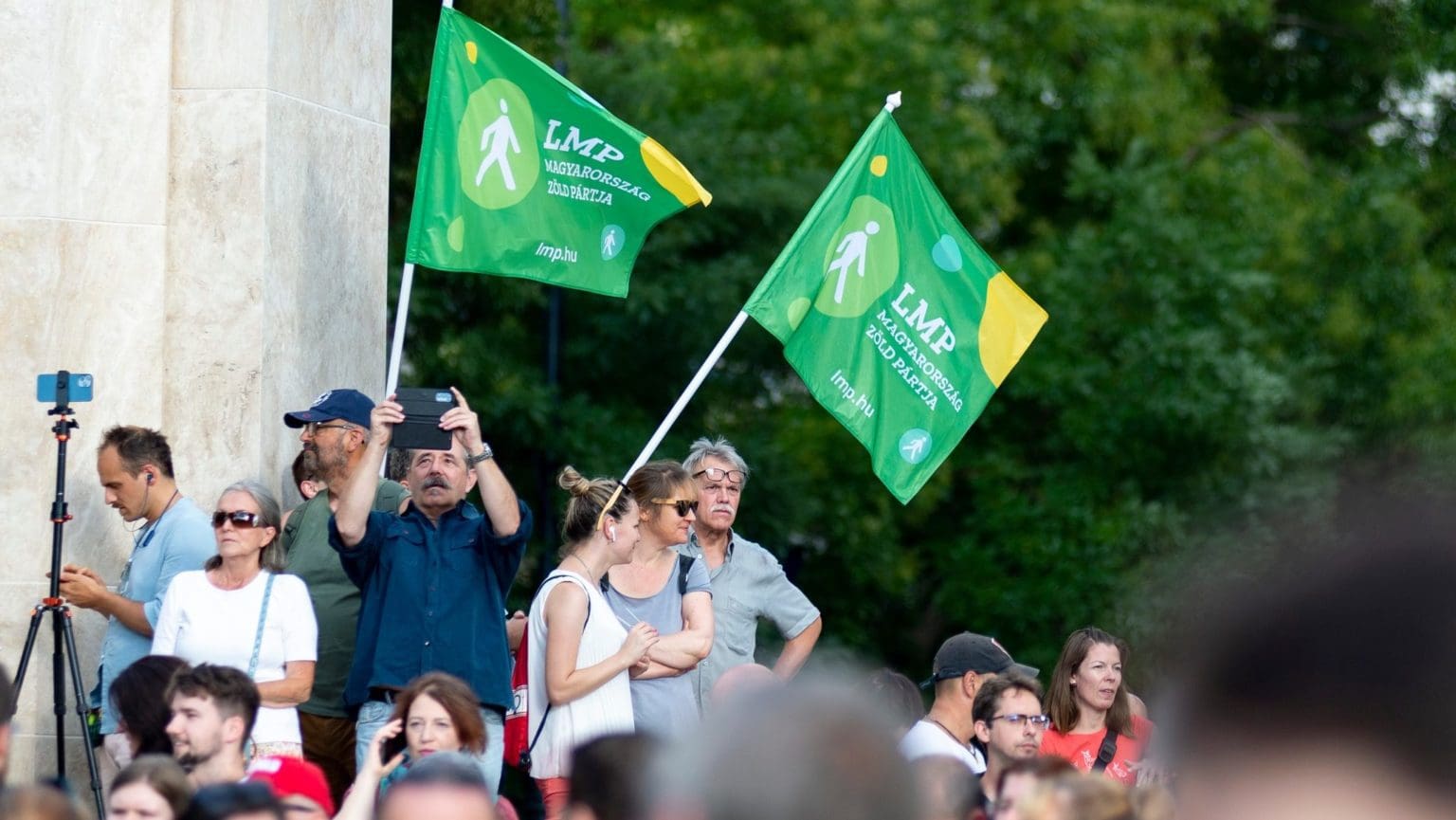LMP organised a protest last weekend, where only one tenth of the people expected to arrive showed up.
Continuous Failures
This is not the first time that a protest organised by the left fails miserably. As the opposition offers no real alternatives to government policies, practically nobody wants to support what they see as a failed endeavour – Zoltán Kiszelly, analyst at Századvég Institute told Magyar Nemzet.
Kiszelly opined that the opposition is still unable to provide viable alternative responses to questions that political parties and the population are confronted with. They do not seem to have solutions to problems that would be more effective than those proposed by the current government, so people have gone weary of their messaging. He added that the opposition is still just following events, rather than shaping them. In Kiszelly’s view, the opposition simply has no gravitas.
The opposition is still unable to provide viable alternative responses
In fact, Kiszelly continued, the measures proposed by the left are not well grounded, either because they would be extremely costly, or because Brussels would not allow them. The analyst used the example of VAT cuts demanded by the opposition to illustrate his point. He also reminded of the lack of coordination between the opposition parties, as in the case of the Socialists’ idea of a referendum on EU membership, which the other parties vehemently rejected. Such public confrontations only further alienate voters, he said, also highlighting that controversial former Jobbik president Péter Jakab is now ‘working to build a new party on the ruins of Jobbik’ which only makes the entire opposition even less appealing for voters.
The Protests
In terms of a recent Momentum demonstration he recalled that the party blamed the low turnout on the government, suggesting that it had timed the announcement of its latest (energy-related) measures purposely to take the wind off of the opposition’s sails. Kiszelly noted that the government had to implement the measures in question because of the failed politics of European sanctions and not because of domestic political calculations. Since Europe is looking to introduce even more sanctions, the administration had to act quickly to respond to the war-induced energy crisis and inflation. He also added that if 95 thousand people attend the Sziget Festival instead of a rally organized by the opposition, it does not mean that people only want to have fun, it means that they do not trust the opposition.
One of the participants was Mayor of Budapest Gergely Karácsony
For another example, Kiszelly noted that the recent protest organized by LMP at Kossuth Square was expected to attract about 50 thousand participants, whereas only five thousand attended, despite the fact that the big guns of the party, such as Péter Ungár, Krisztina Baranyi and Erzsébet Schmuck held speeches. Kiszelly remarked that one of the participants was Mayor of Budapest Gergely Karácsony, who happens to be a former member of LMP, but who deserted the party to join Párbeszéd (an opposition party that gathers around 1 per cent of votes in elections). Kiszelly highlighted that at the demonstration Karácsony treated a reporter from Hír TV, a pro-government news channel, in a condescending and threatening manner, and refused to grant an interview.
Tendencies
The LMP demonstration is nothing out of the ordinary. For instance, some weeks ago Momentum organised a protest where only the leaders of the party, reporters and some tourists were present. The party attempted to be creative in the wording of the Facebook event after this epic fail, retroactively renaming the demonstration ‘press conference’. instead of the original protest. Miklós Hajnal, one of the party leaders, blamed low attendance on the summer holiday season.
To sum up, since the landslide victory of the current government in April, the opposition has been in shambles. With parliamentary representatives deserting their parties, including former party heads like Péter Jakab, the coalition that the opposition forces patched together during the election campaign is showing virtually no life signs. As a life support, the opposition is bending over backwards to stir up the populace, and instigate protests, but with little success. As Hungarian Conservative also reported, at the end o July, to protest against changes in the tax laws pertaining to small enterprises, food couriers on bicycles and scooters and representatives of other trades, adversely affected by the change in legislation, had planned to fill the streets of the entire city, but in the end they only blocked some bridges in the centre of Budapest.








